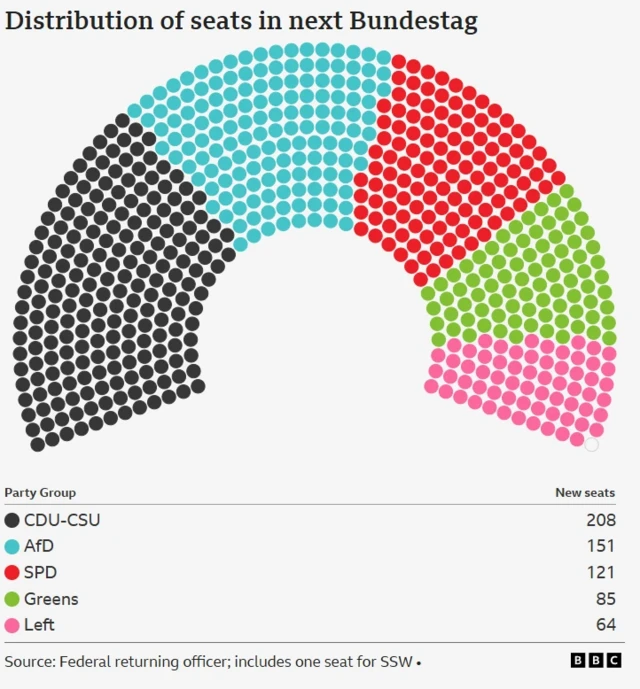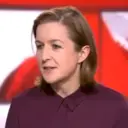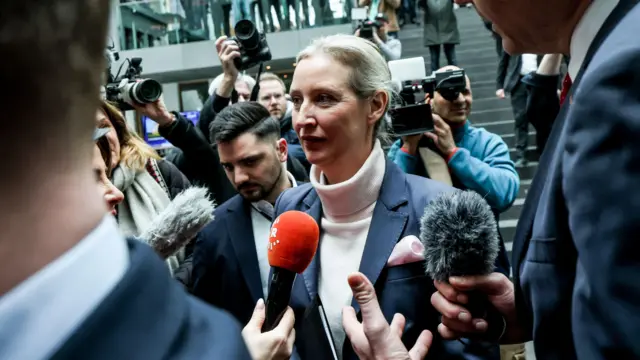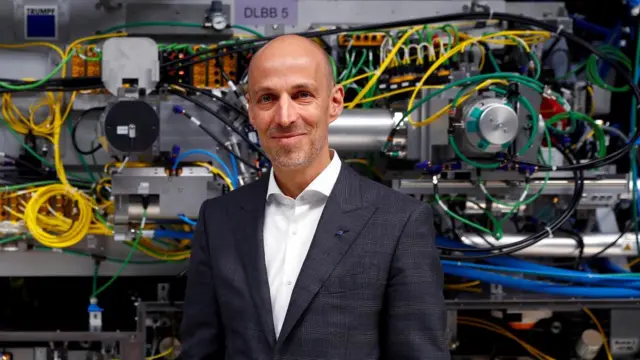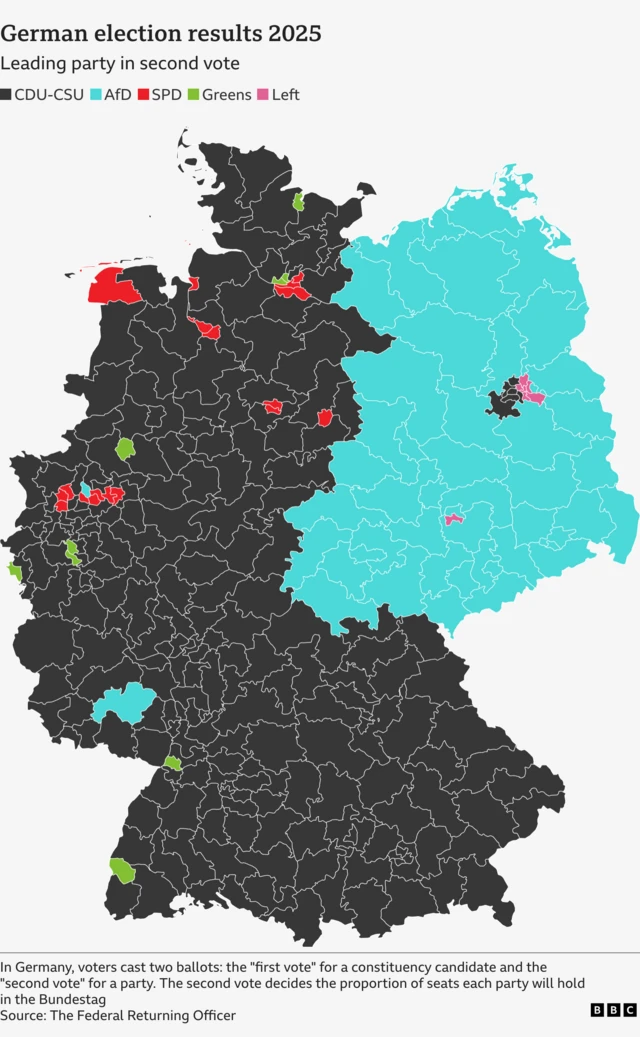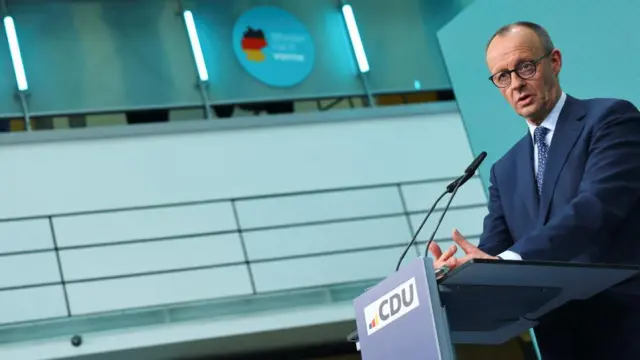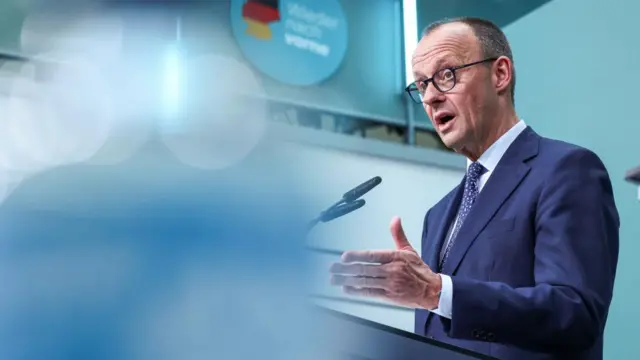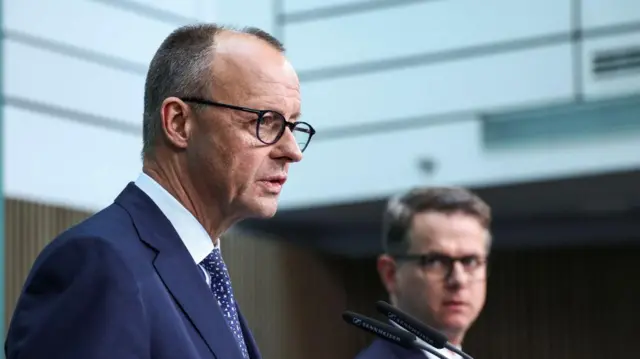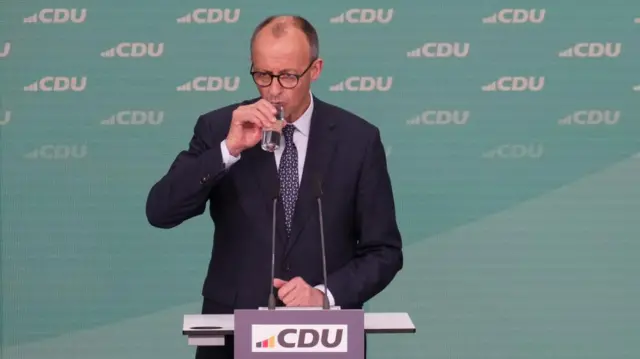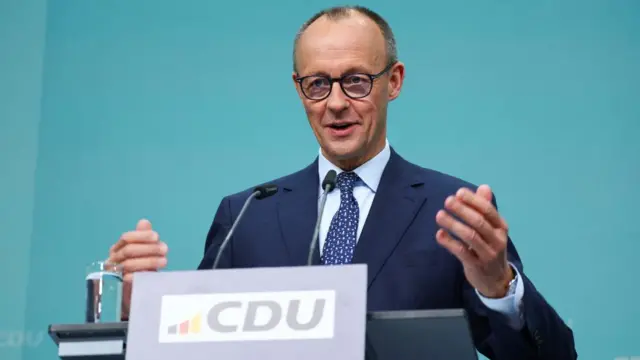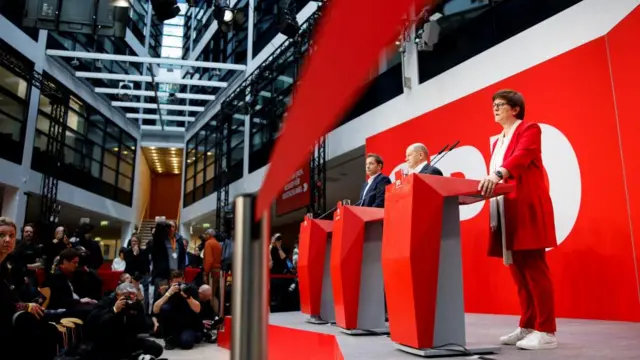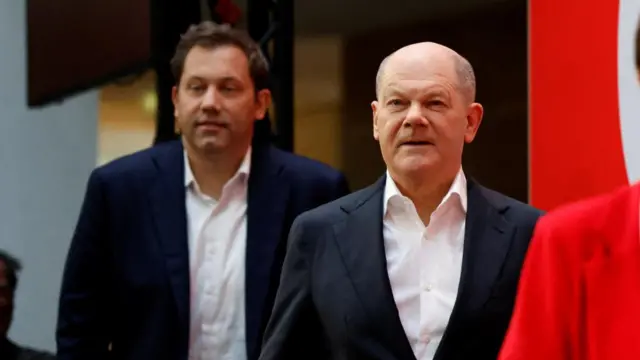Merz in, Scholz out - a huge 24 hours for Germanypublished at 15:07 GMT 24 February
 Barbara Tasch
Barbara Tasch
Live reporter
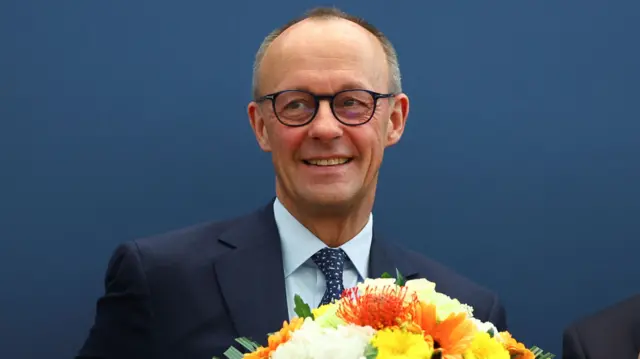 Image source, Reuters
Image source, ReutersIt has been a momentous 24 hours in German politics following snap federal elections. We're closing our live coverage soon, so here's a quick re-cap:
- The conservative alliance in Germany is once again the driving force in Germany's government, with Friedrich Merz set to be the new chancellor
- The far-right AfD made strides and came second
- The outgoing Chancellor Olaf Scholz's SPD had its worst performance in decades
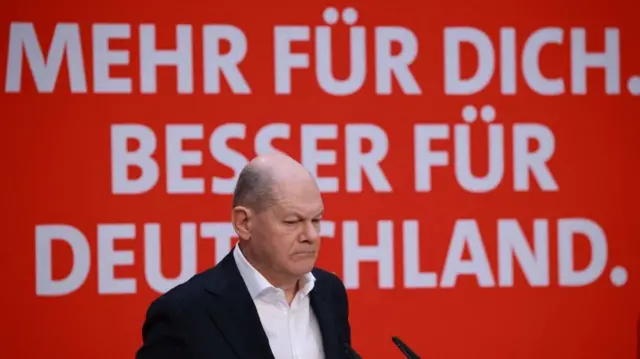 Image source, EPA
Image source, EPAFriedrich Merz, the CDU leader, has vowed to form a coalition government quickly - ideally with the Social Democrats.
The AfD, though, won't be part of that coalition due to a policy of non-cooperation with the far-right by other parties, known as the "firewall". You can read more about that, and why the AfD are called far right, here.
But as the country moves on from its snap federal elections, a stark contrast has emerged: the west and the east of the country are politically at odds.
Internationally, Merz said he would do "everything in my power to conserve this good trans-Atlantic relationship" - but earlier comments about the need for "independence" from the US represent "a seismic shift" in relations, writes our Europe editor Katya Adler.
Merz has clear ambitions to make Germany a driving force in Europe and global affairs, and to spend more on defence without compromising the German "debt brake".
The coming months will show how he attempts this balancing act - just as soon as he can find coalition partners.
